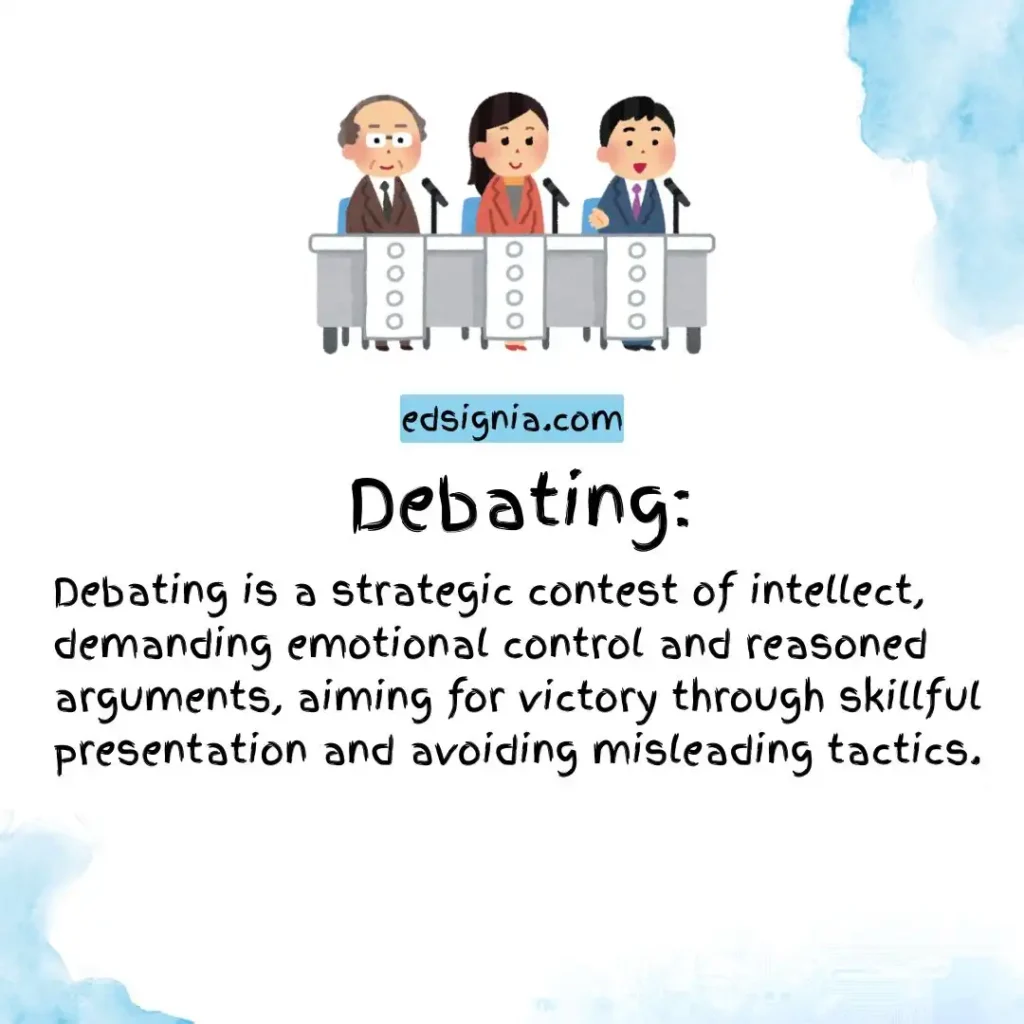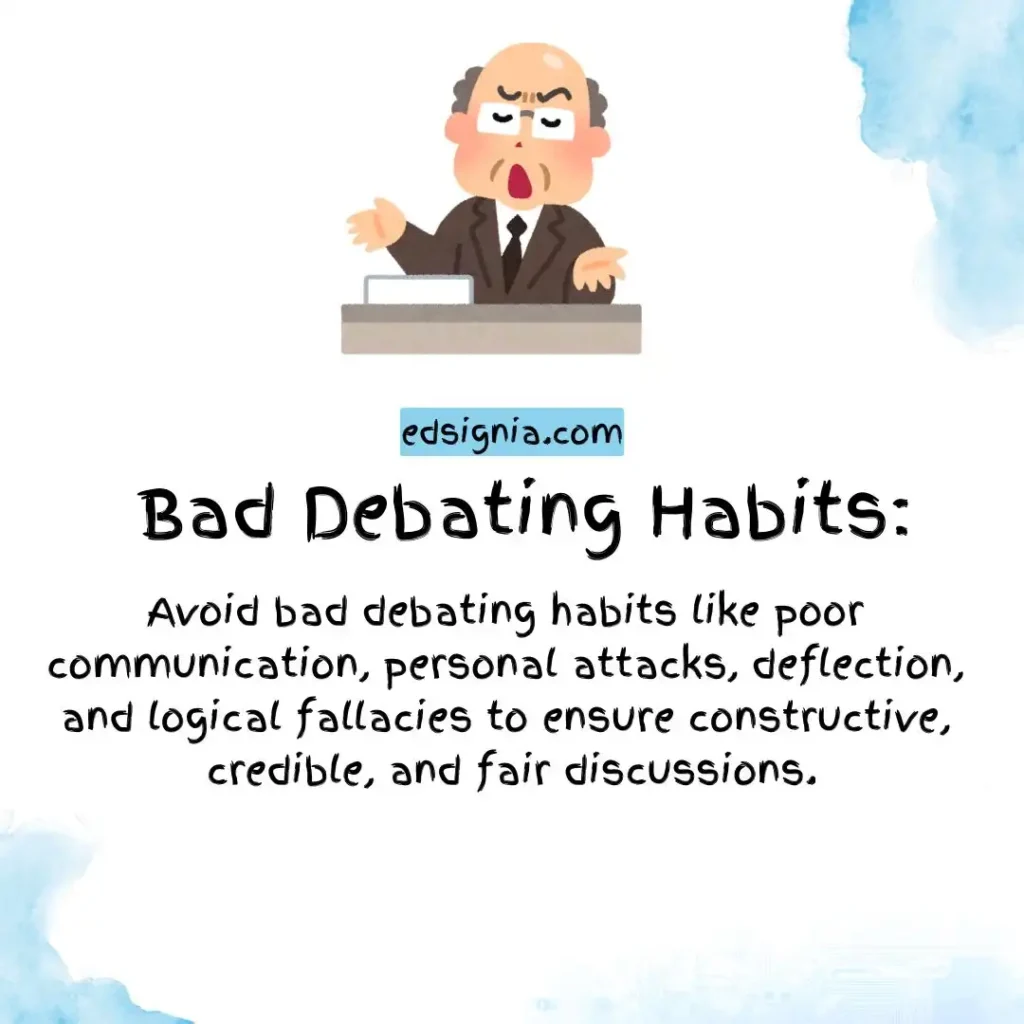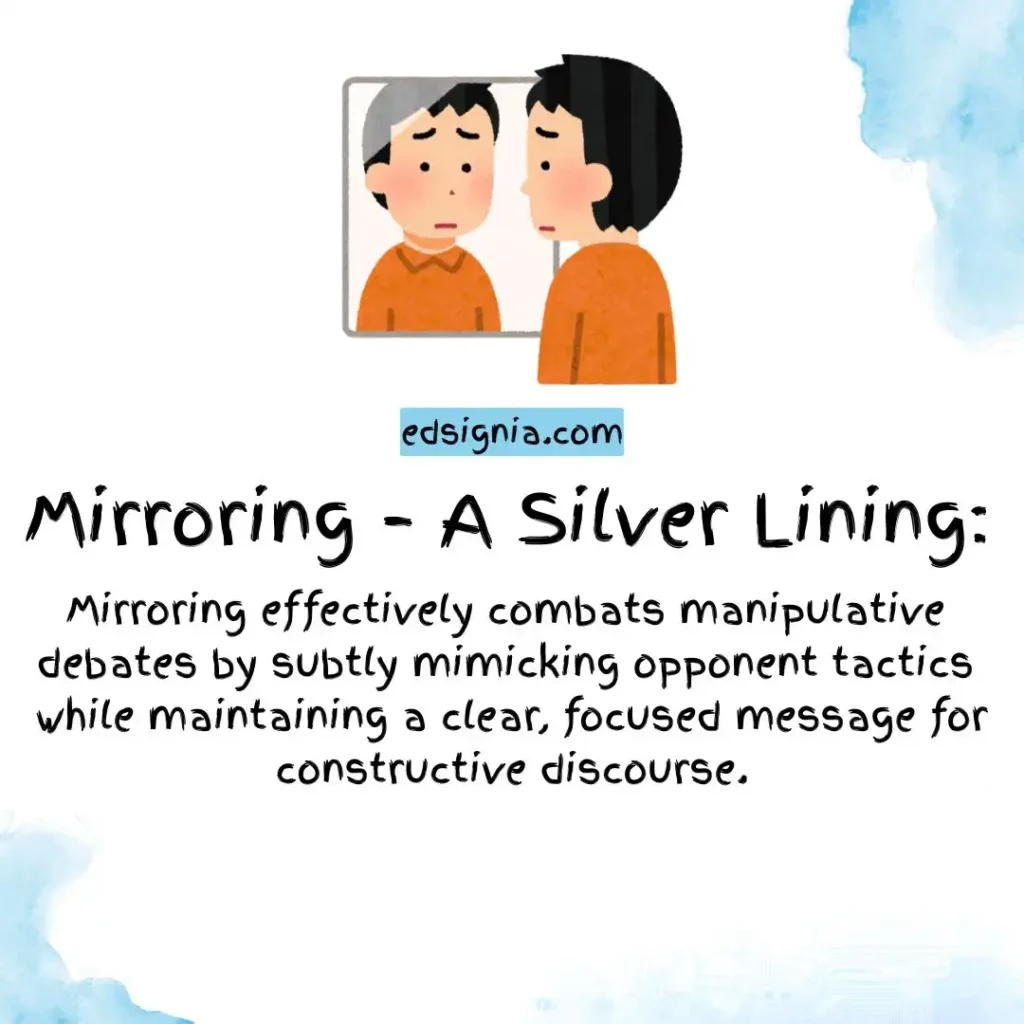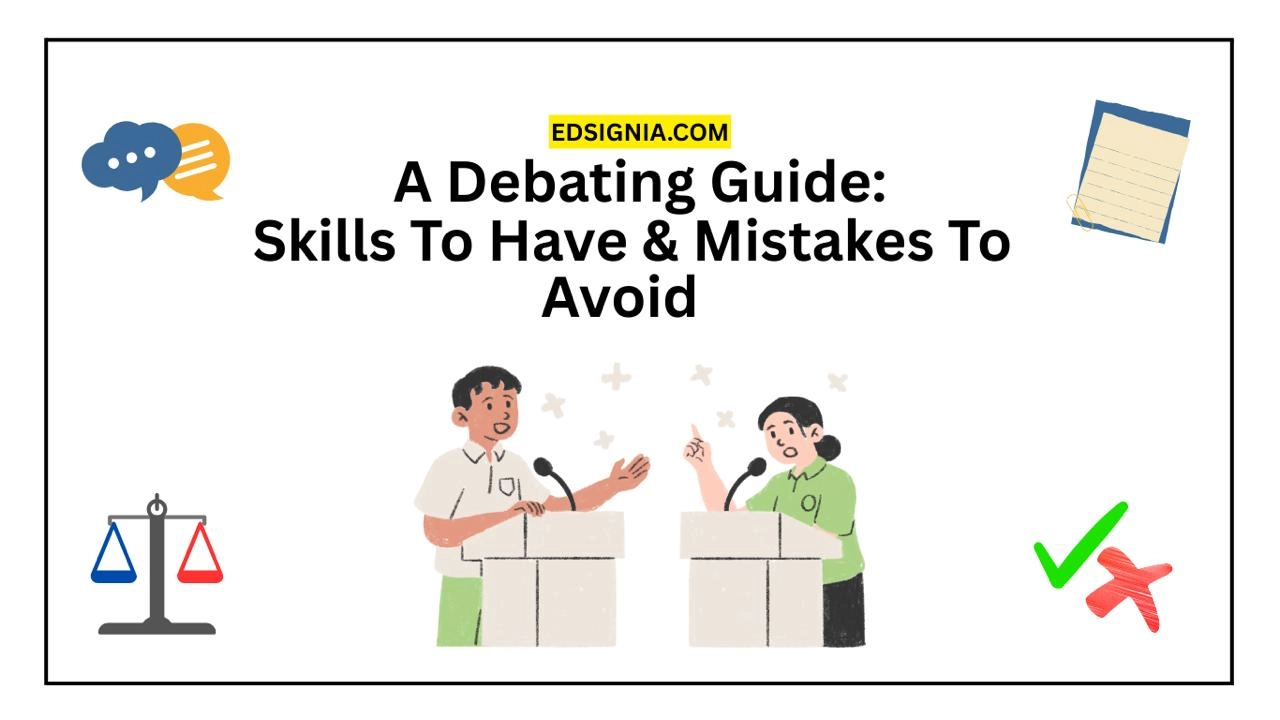Introduction
If you have landed on this page, there’s a high chance that you have an upcoming debate and you want to make a lasting impact on the audience and come out as the winner. Whether you’re preparing for a moderated debate or you want to win an argument against someone on an online forum, this article would come in handy.
I am of the view that debating is not a race to the finish line but a battle of wits. In such a contest, the goal is to reign in on your emotions and provide your argument in a nuanced manner. If it’s a moderated debate, let the audience and the panelists decide the outcome. As for an online debate, consider yourself the victor if you come out with your sanity intact or your opponent starts engaging in debating malpractices.
I know this is easier said than done and a couple of disingenuous remarks can mess with one’s psyche. That’s what we are here for today. We’ll be taking a closer look at the good practices to adopt and bad practices to protect ourselves from. Enough with the boring talk, now let’s dive right into it.

Bad Debating Habits to Avoid (Cons)
There are a plethora of different debating skills which can be lumped into two major parts. Before we start learning about debating skills, we need to know about the bad practices to avoid. In many instances, you will find your opponents engaging in a number of debating malpractices.
To cover all your bases, it is imperative that you should identify these bad practices and refrain from partaking in them yourself. Learning about the said practices will help you provide sound counter arguments when presented with such a situation. The bad debating habits are as follows:
Bad Communication
Poor communication skills in the context of a debate is not limited to grammar and vocabulary. Using technical jargon, interrupting someone in the middle, making snide remarks, and raising your voice are all components of bad communication. Anyone who engages in such practices makes it harder to have a constructive civil debate.
It may sound tempting to return the favour in a similar way but practice constraint as there’s a bright side. When someone keeps interrupting others and keeps talking over them, it rubs the panelists and the audience members in the wrong way. As a result, they lose out on both the points table as well as their credibility among the audience members.
A few examples of bad communication habits:
- “Is that all? I thought you had more to say” (Snide Remark).
- “I DON’T EVER MAKE MISTAKES” (Raising Voice)
Unruly Behaviour
If there’s one thing we all can agree on, it is that a few bad apples are generally responsible for turning every civil discourse into a partisan issue and it results in the debate going haywire. The most common example of this behaviour is engaging in ad hominem (personal) attacks and making insensitive remarks.
From personal experience, I can gather that such occurrences are a lot more common in online debates (if you can even call it one) as opposed to moderated debates. The best reply to such a debater is leaving them to their own devices and to disengage from the discussion. When someone is adamant on making a mockery of themselves in a public setting, the best thing you can do is to grab a front row seat.
A couple of examples demonstrating unruly behaviour:
- “You are a bad person.” (Ad Hominem)
- “You must be running out of arguments by now.” (Irrelevant Remark)
Deflection Tactics
This tactic may seem sincere and honest at first glance but there’s more to it than what meets the eye. The most common debating maneuvers in the contemporary world is to engage in whataboutery and confirmation biases. Even seasoned debaters regularly fall in the trap of employing common deflection tactics.
When someone has run out of answers to a genuine question during a discussion, they will employ deflection tactics as a defense mechanism. An unintended consequence is that it will take the audience’s attention away from the initial question. To counter deflection tactics, just restate the question and hold your ground until you receive an honest answer.
A couple of examples showing common deflection tactics:
- “What about the time when you read my diary without permission?” (Whataboutery)
- “If someone is good at making money, they must be good at everything else.” (Confirmation Bias)
Onion Effect
I know we are not a food blog (yet) but I couldn’t find a better analogy to explain “Logical Fallacy”. A logical fallacy is one which appears to be true at first glance but as soon as you remove a few layers, it appears to be a bold faced lie. This may be the most common debating malpractice and if it goes unnoticed, it may seriously undermine your arguments.
There are a lot of different kinds of logical fallacies such as False Dichotomy (presenting limited choices when more options exist), Red Herring (misleading piece of information), Appeal to Emotion, etc. In terms of a discourse, this is unequivocally the most troubling bit to tackle. The simplest way to uncover a fallacy is to keep asking questions in a layered manner till the flaws in reasoning are there for everyone to see.
A few examples of common logical fallacies:
- “Give me a Yes or No answer to this question.” (False Dichotomy)
- “If I said something wrong, the wise panelists must have objected.” (Appeal to Authority)

Good Debating Skills to Have (Pros)
The first part deals with the good habits or skills which a debater should practice. The argument, regardless of how strong it is, will fall flat if it’s not presented in a proper manner. To ensure that this doesn’t happen, we’ll take a look at some of the key skills a good debater should possess. They are as follows:
Situational Awareness
During a moderated debate, be careful not to make light of any recent tragedy which has taken place. Making crass remarks, insensitive jokes, offhanded comments, tone deaf statements will result in the atmosphere being hostile. If the situation demands you to take a stance, do so by keeping your tone formal and your language neutral.
Don’t make the mistake of using emotionally charged language while you’re on a podium until all the other avenues have been explored. A good debater should not opt for picking the low hanging fruit at the expense of evoking resentment from the participants. When you aim to be sensitive to your surroundings, it portrays you in a positive light to your peers.
A couple of examples demonstrating situational awareness are:
- “Testing the microphone before the commencement of a big event.”
- “Refraining from making a crude joke on a serious issue.”
Conscious Listening
An essential trait of a good debater is their adherence to the practice of active listening. It allows you to understand where your opponent is coming from. Understanding someone’s point of view will allow you to put yourself in their shoes. This will in turn, make the task of framing your questions a lot easier.
During your opponent’s speech, you can choose to make quick notes on the questions which you can ask them later. While asking questions, use their own words against them by paraphrasing the arguments they made earlier. This acts as a great debating maneuver and will compel your competitor to answer earnestly without deflecting.
Some examples of active listening are:
- “Taking short notes and making pointers.”
- “Nodding head and keeping eye contact with the opponent.”
Persuasive Argumentation
The meat and potatoes of a good debate is the arguments presented from both sides. Now, the question arises “What makes an argument strong?”. The main characteristics of a strong argument is the presence of evidence, factual data points, and a proper structure to hold everything together.
Along with a strong argument at hand, ensure that you are able to eloquently present your points in a concise and coherent manner. Noone likes to hear ramblings so instead of using the same phrasing to reiterate your points, use a wide range of examples to drive your point home. This will allow you to differentiate yourself from the crowd and create a lasting impression on the panelists as well as the audience.
A few examples of sound argumentation are:
- “Staying true to the crux of your argument throughout the entire discourse.”
- “Using inflection in your voice in accordance with the message you are delivering.”
Prompt Rebuttal
Any debate is incomplete without rebuttals, counter arguments, and cross questioning. Always keep a note on contentious points or fallacious arguments made by your opponents. I have experienced that in most moderated debates, cross questioning is either not allowed or extremely limited.
While providing rebuttals to an opponent’s points, frame it in a complete but condensed manner. This will help you sum up all your counter arguments in a single turn. Since time (or your turn) is of the essence here, we need to make the most out of what has been allotted to us.
Some key examples of a rebuttal are:
- “Presenting a counter argument in minimal time.”
- “Refuting all the points of your opponents with substantial proof.”

The Silver Lining – Mirroring
We have talked about the skills a good debater should possess and the bad practices to be discarded but that’s not all. There are circumstances when the line becomes blurry and the opposition engages in all the debating malpractices one after the other. They receive cheers and applause, not just from the audience but from the panelists as well.
In such a case, what’s the best course of action to follow? Mirroring is one such practice which may prove to be the perfect response to this dilemma. Use the same pattern of responses or debating tactics which your competitor is using against you.
However, do not deviate from the core message which you are trying to deliver. Mirroring proves to be a silver lining only when you utilize it as a strategy to get your points across the table. Use it as a literary device to ensure that the conversation comes back to a level headed pace once again and a civil debate ensues.

Conclusion
If you’re still reading, I hope you found this article useful. We did a deep dive into the finer intricacies of debating while trying to find the good and bad debating etiquettes. In doing so, we also took a quick look at mirroring and how it can act as a lever to bring the discussion back to a nicer place.
At the end of the day, the one who is sitting on your opposite end is not a rival or an enemy. It is someone who has a different worldview shaped by their own personal life experiences. I know this message can be hard to remember, especially during those online heated exchanges (We have all been there) but there’s some value to it.
This is the key takeaway from this piece in my opinion. If you want to share your thoughts, do let me know in the comments down below. You can also choose to take a look at our recent article on “The Paradox of Tolerance“. Happy debating everyone.


A big fan of your writing style and the topics you cover. Keep em coming dear writer , with all your witty explorations of such topics.
“At the end of the day, the one who is sitting on your opposite end is not a rival or an enemy. It is someone who has a different worldview shaped by their own personal life experiences” – A valuable reminder.
Happy debating to you too !!